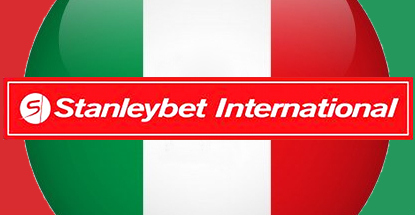 Liverpool-based betting operator Stanleybet has lost its court challenge of Italy’s right to issue betting licenses of shorter durations than those previously issued. The brouhaha began in mid-2012 after Italy decided to issue licenses for 2k new betting shops but stipulated that these licenses would be valid for a 40-month period, not the 12-year period previous licensees had enjoyed.
Liverpool-based betting operator Stanleybet has lost its court challenge of Italy’s right to issue betting licenses of shorter durations than those previously issued. The brouhaha began in mid-2012 after Italy decided to issue licenses for 2k new betting shops but stipulated that these licenses would be valid for a 40-month period, not the 12-year period previous licensees had enjoyed.
Stanleybet’s Malta-based subsidiary operates a number of data transmission centers (CTD) in Italy that remotely connect betting shop patrons to Stanleybet sites. These CTDs had been operating in Italy for 15 years without a license, mainly because Italy had deemed international companies like Stanleybet ineligible for licenses.
When the European Union ordered Italy to play by the rules, Stanleybet argued that the 2012 tender process unfairly favored previous licensees, who enjoyed longer license periods and were allowed the freedom to transfer these licenses. Italy retorted that the new license duration was intended to align license expiry dates.
In a decision released on Thursday, the Court of Justice for the European Union (CJEU) dismissed Stanleybet’s argument, saying Italy had the right to align its betting license expiry dates, which “may contribute to a coherent pursuit of the legitimate objectives of reducing gambling opportunities or of combating criminality linked to betting.” The CJEU also rubbished Stanleybet’s claim to being ‘new entrants’ given their previous unlicensed activities in the Italian market.
ITALY’S NEW VLT/AWP TAX KICKS IN
Meanwhile, Italy’s new tax on video lottery terminals (VLT) has taken effect. In December, Italian politicians approved a new tax on VLTs and amusement with prizes (AWP) machines. The tax is applied based on the number of machines each operator has, regardless of the revenue each machine generates. The law prompted many operators to reduce their number of machines in the hope of lessening their tax burden.
Italy expects to raise an additional €500m in annual revenue via the tax. Around €96m of this is expected to come from Lottomatica/Gtech, while B Plus will be dinged for around €85m. Other major contributors include Gamenet, (€46m), Sisal (€45m) and SNAI (€37m). DLA Piper gaming attorney Giulio Coraggio suspects the new tax could lead to a court challenge as well as a round of consolidation as smaller operators find the new tax makes business unsustainable.
